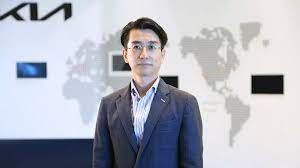China News & Trends


Being from the East gives us a competitive edge: Sano Takeshi
Takeshi Sano was recently in India. Sano took over as CEO of Densu Japan in January of this year and will shortly take on a new role as the network's deputy global COO. In the past 11 months, the ambitious Sano claims to have exchanged business cards with 2,900 people. Sano met more than 100 people at an event for the agency's clients while in India. Quotes from a discussion in which Yuichi Toyoda, global practice president of business transformation, and Harsha Razdan, CEO of Dentsu South Asia, also participated:For our Japanese clients, India is becoming a more significant strategic market. Of course, we care about the markets that matter to our clients. Additionally, a large number of Japanese customers intend to visit India, one of the economies with the quickest rates of economic growth. We hosted an event for our about 100 Japanese clients during my visit to demonstrate to them our combined strength from Dentsu Japan and Dentsu India. We wanted to let them know that we would also find a method to help them from Japan.Additionally, we wanted to inform the clients that Dentsu Japan is a partner for business transformation (BX) and customer experience (CX) in addition to being an advertising agency.In August, we introduced the Dentsu BX in India. We create creative strategies and solutions that tackle the intricate problems that our clients encounter by fusing marketing, technology, and consulting. Next year, we also want to open our R&D lab, Dentsu Labs, in Bengaluru and Mumbai. Since its founding in Japan in 2014, Dentsu Labs has begun to grow internationally, beginning in the EMEA (Europe, the Middle East, and Africa) region this year. It will hasten the development of innovations for society, businesses, and consumers.
Published 17 Dec 2024 08:32 PM


Moves and win roundup: Week of January 2, 2024
The media agency for Publicis Groupe, Starcom, has announced a new win: starting in 2024, Starcom Indonesia will serve as BMW Group's media agency of record, joining Starcom in China and Singapore, which will continue to hold that title in their respective regions. As the media agency of record in these markets, Starcom will oversee strategic planning, media buying, and business transformation for all of BMW Group's most iconic brands, including BMW and Mini, after a regional media assessment by BMW Group.Former chief marketing and customer officer of AXA Hong Kong Andrea Wong has left the company to become senior vice president of group marketing and communications at Shangri-La Group. As stated in a LinkedIn post, Wong will work with new colleagues “to further strengthen the hotel brands, create impactful marketing campaigns and PR efforts, and further build up the Shangri-La Circle propositions to deliver superior customer experience.” She will report to Kuok Hui Kwong, the chairman of the group. Wong joined AXA in 2008 and has worked there for more than 20 years. She was appointed CMO of AXA Hong Kong and Macau. To improve its social media marketing service, Innocean has formed a social marketing organization called Innocean S, which is scheduled to open for operation in January 2024. Span Wealth is the newest client of Human, an integrated agency based in Mumbai that was created by Imran Khan and Chirag Raheja. The agency's brief calls for giving the brand a fresh look, incorporating classic elegance, and developing an influential, forward-thinking online presence. With more than 500 crores of assets under management, Span Wealth is a wealth management firm situated in Mumbai. Dorothy Peng announced on LinkedIn that she has become a partner at Deloitte Consulting in Singapore. Peng will be focusing on design and customer strategy in Southeast Asia. She spent more than eight years as an employee of RGA before joining Deloitte. In 2015, she started working for the agency as a group account director. In 2022, she received a promotion to SVP managing director Asia.
Published 24 Jan 2024 12:50 PM
No News Founds!


Today's stock market: Asian stocks are divided as Wall Street emerges from its holiday-season slump
HONG KONG (AP) — Following Wall Street's recovery from the holiday season blues, Asian stocks are uneven, with markets in China and Tokyo seeing declines.As Tokyo's market reopened following the lengthy customary holiday, the finance minister of Japan rang in the New Year, and employees wearing suits and kimonos applauded for good fortune in 2025.Katsunobu Kato, the finance minister, declared that the Japanese government would take action to assure economic growth driven by investment and salary rises. He also promised to "grasp signs of recovery" and make sure that "every single citizen can feel the improvement in their salaries."Much of Asia has been wary of possible changes under President-elect Donald Trump, who has pledged to drastically increase tariffs on imports from China and other nations, which might impede growth for a region that depends significantly on trade. After U.S. President Joe Biden turned down Nippon Steel's roughly $15 billion offer to buy Pittsburgh-based U.S. Steel Corp., the company was predicted to file a lawsuit. On Monday, Nippon Steel's stock dropped 0.7% in Tokyo. On Friday, U.S. Steel's stock fell 6.5%. Hong Kong's Hang Seng fell 0.5% to 19,654.82, while Tokyo's benchmark Nikkei 225 index fell 1.6% to 39,258.25. At 3,194.20, the Shanghai Composite index fell 0.5%.
Published 06 Jan 2025 10:33 PM


A significant change in China's monetary policy sparked a stock market boom. Yet 'a lot of instability' remains a threat.
Monday saw a surge in Chinese stocks following the nation's indication of a more aggressive stimulus plan for the upcoming year. According to China state media Xinhua News Agency, Beijing's senior leaders announced they will adopt a "more proactive" fiscal policy and a "moderately loose" monetary policy.Hui Shan, the chief China economist at Goldman Sachs, wrote in a note to clients on Monday, "We view the outcome as an upside surprise due to stronger easing rhetoric, relative to the low market expectations prior to the meeting." The team also anticipates the announcement of "more concrete demand-side stimulus measures" early next year. Interestingly, the economist notes that China last referred to its monetary policy stance as "moderately loose" in 2009–2010.Following the remarks, Hong Kong's benchmark Hang Seng Index (^HSI), which is dominated by huge Chinese stocks, increased by almost 3% on Monday. The upward movements were echoed by other Chinese-listed corporations and exchanges. On Monday, China's benchmark CSI 300 (000300.SS) increased by more than 1%. Chinese e-commerce behemoths Alibaba (BABA), PDD Holdings (PDD), and JD.com (JD) also saw at least 9% increases in their stock prices. XPeng (XPEV, 9868.HK), a Chinese manufacturer of electric vehicles, too had double-digit growth, increasing by about 14%.
Published 10 Dec 2024 11:07 PM


Twenty-seven Maoists in Sukma, Chhattisgarh, surrender
According to the police, up to 27 active Maoists with a combined reward of ₹50 lakh turned themselves in to the Sukma district on Wednesday, October 15, 2025.This comes a day after 60 other cadres and senior Naxalite Mallojula Venugopal Rao, also known as Bhupathi, surrendered in the Gadchiroli district of Maharashtra. The government's determination to abolish Naxalism, which is mostly centered in the Bastar area of Chhattisgarh, by March 31, 2026, has been emphasized by Union Home Minister Amit Shah.Ten women were among the 27 Naxalites who gave up in Chhattisgarh on Wednesday. They surrendered in front of Central Reserve Police Force officials and top police officers. According to Sukma Superintendent of Police Kiran Chavan, they expressed dissatisfaction with the "hollow" Maoist doctrine, crimes carried out by Naxalites on defenseless tribal people, and the increasing power of security forces. The Chhattisgarh government's 'Niyad Nellanar' initiative, which aims to facilitate development projects in rural communities, and the state's new surrender and rehabilitation policy also impressed the cadres, he said.According to the official, Oyam Lakhmu, a member of battalion no. 1 of the Peoples' Liberation Guerrilla Army, which was regarded as the most formidable Maoist military unit, was carrying a bounty of ₹10 lakh on his head. Three more According to him, Madvi Bhima, a party member in PLGA battalion no. 1's military platoon unit, Sunita, also known as Kawasi Somdi, and Sodi Mase, who were both members of regional military company no. 2, each held a ₹8 lakh reward. Additionally, he stated that a cadre held a prize of ₹3 lakh, two cadres held a bounty of ₹2 lakh each, and nine cadres held a reward of ₹1 lakh apiece.He stated that all of the Naxalites who turned themselves in received ₹50,000 in aid apiece and would receive additional rehabilitation in accordance with government policy.
Published 15 Oct 2025 05:10 PM


To stop diversion to China, the US tightens regulations on cutting-edge computer processors.
Reuters, Washington, January 15 In an effort to stop high-end chips from being diverted to China, the US tightened regulations on advanced computer semiconductors on Wednesday, according to the Commerce Department.According to the report, the new regulations place more stringent licensing requirements on chip manufacturers and packaging firms looking to export specific cutting-edge semiconductors. According to Commerce, they expand on previous actions meant to prevent China from obtaining specific semiconductors that are essential for military advantage.In an effort to slow down China's technological achievements, the US has tightened regulations for firms like Nvidia and imposed broad new laws restricting the sale of artificial intelligence (AI) processors. The worldwide AI chip market, particularly the Indian market, may be significantly impacted by these new regulations. The new regulations, which are expected to go into force in a year, place stringent restrictions on the processing capacity of AI chips that are marketed in the majority of nations. There are exceptions for allies who follow the security and human rights guidelines that the US has established. The intent of these new regulations is to stop enemies, especially China and Russia, from using cutting-edge AI technology for surveillance or military objectives."Trade-offs are necessary for managing national security threats. In a White House blog post, US Commerce Secretary Gina Raimondo stated, "This rule guarantees our allies can access advanced technology while protecting our interests." In order to guarantee that AI development complies with US requirements, the laws expand upon earlier chip export controls. “This rule ensures that the infrastructure for frontier AI systems remains in America or allied jurisdictions, preventing offshoring similar to what occurred with chips and batteries,” said National Security Advisor Jake Sullivan in a formal statement.
Published 15 Jan 2025 08:48 PM


China is constructing the biggest artificial island airport in the world.
The largest airport in the world on an artificial island is another impressive addition to China's aviation portfolio.According to an airport statement, the Dalian Jinzhou Bay International Airport, which is currently being built off the northeast coast of the country, will eventually span a 20-square-kilometer (7.7-square-mile) island with four runways and a passenger terminal that is 900,000 square meters (969,000 square feet).With the first phase scheduled to open in 2035, its operators hope to handle 80 million people annually across 540,000 flights.According to a tweet made by Dalian Jinzhou Bay International on the Chinese social networking site WeChat, "The nation's largest offshore airport is slowly rising from the sea level like the sunrise in the east."When finished, it will surpass Japan's Kansai Airport (KIX) and Hong Kong International Airport (HKG) as the largest airport on an artificial island in the world. Li Xiang, chief engineer of Dalian Airport Construction and Development Co., Ltd., told state-run local media in October that the project had experienced significant difficulties due to its complex geological conditions, high drilling difficulty, high quality demand, and tight construction schedule. The 7.5 million-person metropolis of Dalian has traditionally served as a transportation hub because of its close proximity to South Korea and Japan. According to Yicai, a state-affiliated daily, Dalian Zhoushuizi Airport, the city's international airport that has been in operation for almost a century, has already reached its maximum capacity and has undergone multiple expansions in recent years. According to state-run local media, the city began site selection and demonstration work on the new airport in 2003, but building only really got underway a few years ago. The expansion of China's aviation industry is mostly due to new airports. The nation is poised to overtake the US as the largest air travel market globally. Daxing (PKX), Beijing's second airport, opened with much fanfare on October 1, 2019, the 70th anniversary of the People's Republic of China's founding. Chinese officials at the time stated the
Published 19 Dec 2024 11:08 PM


"LAC Situation Stable But Sensitive, No Friction In A Year" : the Army Chief of Staff
There haven't been any more areas of friction between China and India in the past year, Chief of Army Staff General Manoj Pande stated on Monday, despite maintaining that the situation along the Line of Actual Control (LAC) is stable "but sensitive." The Chief of Army Staff stated in an interview with ANI that since April 2020, there have been 20 meetings of senior higher military commanders and 14 meetings of the Working Mechanism for Consultation and Coordination on China-India Border Affairs.The Line of Actual Control (LAC) situation is sensitive but stable. We haven't had any more conflict areas in this over the past year or so. Regarding our efforts to find a solution, we are still in communication and dialogue with the enemy on a military and diplomatic level, General Pande stated."Since April 2020, we have held 14 WMCC meetings and 20 senior higher military commander level meetings," he stated. We therefore hope that through these discussions, a solution can be reached." The 3,488 km border between India and China passes through Arunachal Pradesh, Himachal Pradesh, Uttarakhand, Sikkim, and Jammu and Kashmir. Since May 2020, when the Chinese troops tried to aggressively change the status quo on LAC in eastern Ladakh, both sides have been deployed in forward positions near Patrolling Point 15, which emerged as a friction point in the wake of the Galwan clash.General Pande gave a briefing on the Army's readiness levels along the northern border, stating, "We are maintaining adequate reserves to be able to deal with any contingencies and our deployment remains robust as well as balanced." "As all of this is going on, we are also concentrating on strengthening our capacity in these domains by introducing better systems, modernizing our fleet, and introducing safer vehicles, drones for surveillance, improved radio sets for communication, etc. We are concentrating on and exerting effort on infrastructure development at the same time. Be it the habitat, forward connectivities to the LAC, or strategic road connectivity...it also includes extending power supply to our forward troops, improving communication in terms of 5G communication to our troops deployed in forward areas," the Army chief said. "We are also working alongside other government agencies, local administration and the local population to make sure that our preparedness levels along the LAC always remain high," he stated.
Published 29 Jan 2024 05:14 PM
No News Founds!
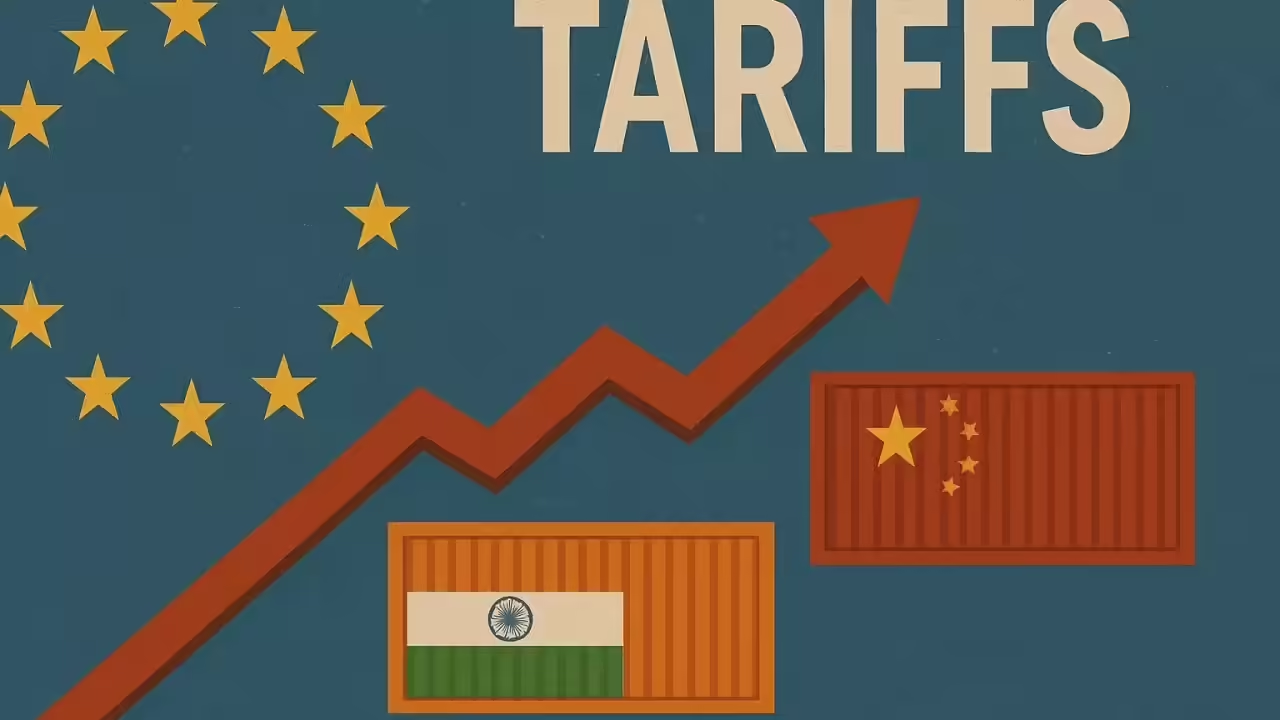

Is it possible for the EU and NATO to impose tariffs on China and India as Trump desires?
In an effort to pressure Russian President Vladimir Putin to halt the war in Ukraine, US President Donald Trump has urged NATO and EU members to impose tariffs of up to 100% on China and India.Trump, who previously pledged to end the conflict on “day one” of becoming president, made his demand during a meeting between United States and European Union officials last Tuesday. The move is seen as a way to try to expedite a peace deal between Moscow and Kyiv.In a letter posted on his Truth Social account on September 13, Trump said he was “ready to do major sanctions on Russia” once NATO had “agreed … to do the same thing”. He also claimed that elevated tariffs on China would weaken Beijing’s “control” over Russia.China and India buy Russia’s oil, which is helping to keep the Russian economy afloat. As the largest buyer of Russian energy, China imported 109 million tonnes of crude oil last year, representing roughly 20 percent of its total energy imports, according to Chinese customs data. India, by contrast, imported 88 million tonnes of Russian oil in 2024, or about 35 percent of its imports.To sidestep the issue, Trump on Saturday asked NATO to impose 50-100 percent tariffs on China to weaken Beijing’s economic grip over Russia. In the letter Trump posted on Saturday, he claimed the halt on Russian energy purchases, combined with heavy tariffs on China, would be of “great help” in ending the conflict.Europe’s reliance on Russian energy has fallen since the start of Moscow’s full-scale invasion of Ukraine in February 2022. At the time, the EU imported 45 percent of its natural gas from Russia. That is expected to fall to just 13 percent this year. But Trump wants Europe to do more.
Published 16 Sep 2025 02:06 PM
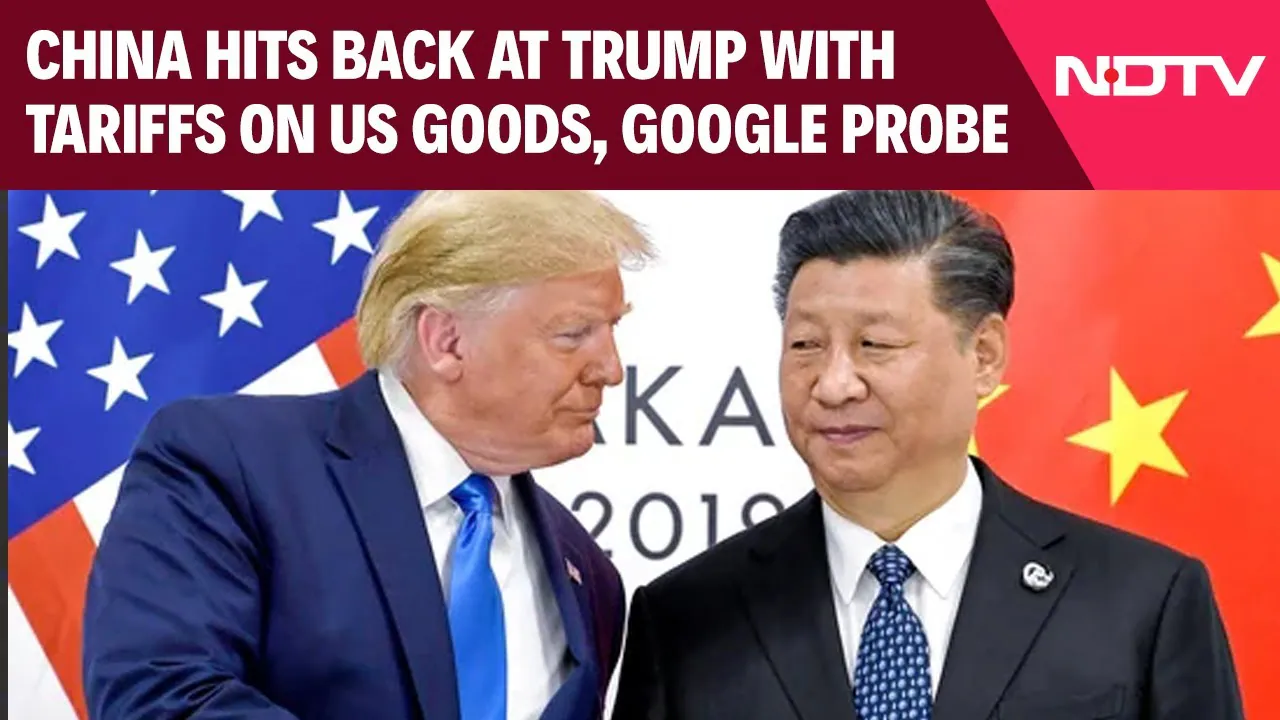

We Don't Take Part In Wars : China Responds to Trump's Threat of 100% Tariffs
The comments were made soon after US President Donald Trump suggested on Saturday that NATO apply 50–100% tariffs on China.In response to President Donald Trump's suggestion that NATO put 50–100% tariffs on Beijing for its purchases of Russian energy, China has retaliated. Chinese Foreign Minister Wang Yi has emphasized that sanctions would only make matters worse and reiterated Beijing's commitment to advancing peace negotiations to address hot-spot concerns.According to China Daily, he made the comments at a press conference in Ljubljana on Saturday following a meeting with Tanja Fajon, Slovenia's Deputy Prime Minister and Minister of Foreign and European Affairs."China does not participate in or plan wars, and what China does is to encourage peace talks and promote political settlement of hotspot issues through dialogue," Wang Yi stated.Additionally, he called for the strengthening of multilateral structures, the promotion of multilateralism, and the cooperative defense of the UN Charter's goals and tenets. He emphasized that the current state of international affairs is marked by ongoing wars and entangled disarray."China and Europe ought to work together rather than against one another, and they ought to be allies rather than adversaries. According to Global Times, Wang Yi stated, "Making the correct decisions in the midst of the biggest changes in a century demonstrates the responsibilities that both sides should fulfill towards history and the people."His subliminal allusion follows US President Donald Trump's suggestion on Saturday that NATO apply tariffs on China ranging from 50% to 100%.
Published 15 Sep 2025 09:13 PM
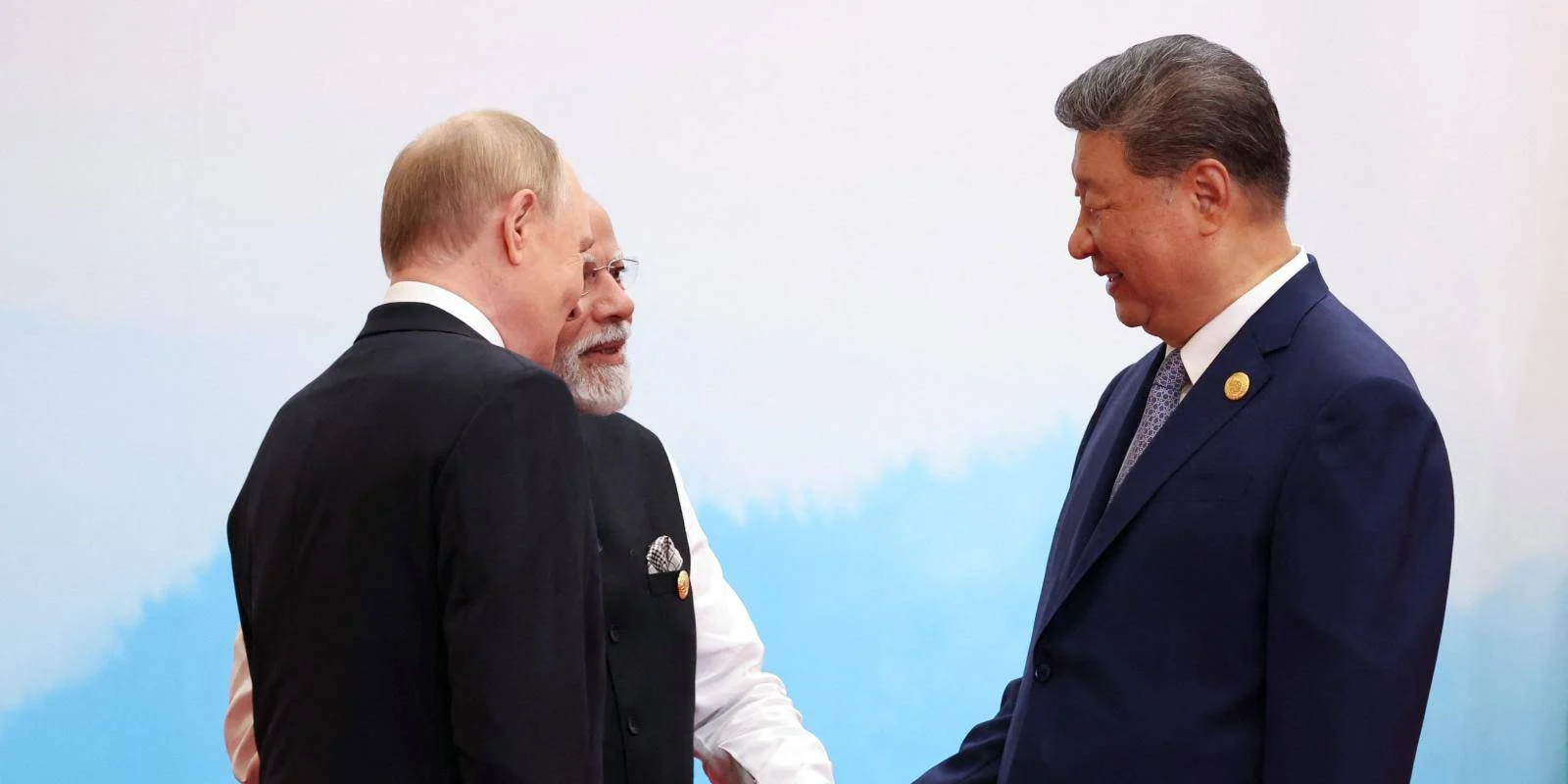

An Overview of the UPSC Issue | SCO Summit 2025 and India: Four Crucial Questions for Prelims and Mains
By scheduling two significant events in one week—the Shanghai Cooperation Organization (SCO) Summit in the northeastern city of Tianjin and a Victory Day parade in Beijing's Tiananmen Square commemorating the 80th anniversary of the end of World War II—Beijing has entered diplomatic high season as summer draws to a close. It's difficult to overlook the symbolism. The events convey a clear message: in contrast to the Western narrative of a free international order led by the United States, China is positioning itself as the standard-bearer of a multipolar world dominated by the Global South.Both occasions are expertly produced political plays that combine military prowess, diplomatic posture, and historical narrative. Additionally, China has two audiences in mind: it wants to project power and influence in its neighborhood and beyond while simultaneously boosting domestic public morale. For a long time, Chinese strategists have emphasized that the goal of foreign policy is to establish an external environment that supports economic growth at home. Originating with previous Chinese leader Deng Xiaoping, this core idea has evolved into the current leadership's catchphrase for negotiating a turbulent global landscape.The two events' participating nations attest to China's continued strategic emphasis on Asia. The majority of major Asian nations are represented among the more than 30 heads of state and international organizations taking part, with the notable exception of Japan, South Korea, Singapore, and the Philippines—all of whom are strong security partners of the United States.
Published 05 Sep 2025 08:48 PM
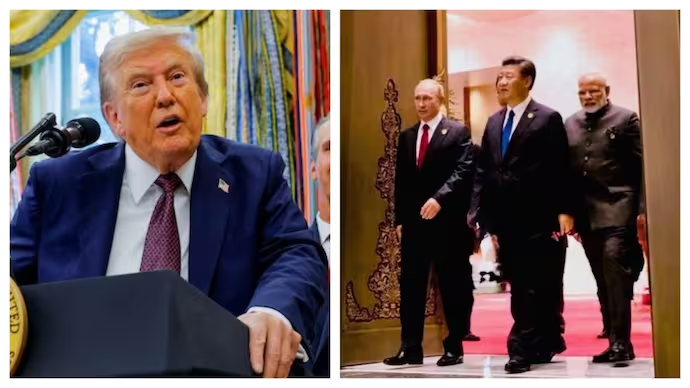

Trump posts a photo of Xi, Putin, and the PM together: China has taken Russia and India away from us.
Days after the leaders of the three nations were spotted together at the Shangai Cooperation Organization (SCO) Summit in Tianjin, Donald Trump gave a strong indication on Friday that Washington-New Delhi relations had reached a low point when he claimed that the US had "lost" India and Russia to the "darkest" China.Donald Trump's statement that the US has "lost" India and Russia to the "darkest" China on Friday, just days after the leaders of the three nations were spotted together at the Shangai Cooperation Organization (SCO) Summit in Tianjin, was a clear indication that relations between Washington and New Delhi had reached a low point.India and Russia appear to have been lost to the darkest, most sinister China. I hope their future together is filled with success and longevity! "President Donald J. Trump," Trump wrote as the description for his Truth Social post, which included a photo of PM Modi at the Tianjin meeting with Putin and Jinping. During a press briefing on Friday, the Ministry of External Affairs declined to comment on Trump's post. "We don't have anything to comment on Trump's post as of now" ."Trump and Modi had a great personal relationship. In an interview with the British broadcaster LBC, Bolton stated, "I think that's gone now, and it's a lesson to everybody." "For example, (UK Prime Minister) Keir Starmer -- a good personal relationship may help at times, but it won’t protect you from the worst" . Bolton's warning implied that Modi's much-discussed "bromance" with Trump, which previously made headlines for everything from state visits to Houston's "Howdy Modi" rally, might have come to a standstill.
Published 05 Sep 2025 08:40 PM
Entertainment
No News Founds!
Sports Trend


AI will be used by the Japan Sports Agency to help athletes
Published 06 Jan 2025 09:18 PM


China is on the verge of a shocking Asian Cup exit, while Tajikistan is making history
Published 24 Jan 2024 05:11 PM


Chinese chess champion allegedly used anal beads and was banned for a year after pissing in the bathtub" After defecating in a bathtub and being accused of cheating, 48-year-old Yan Chenglong, the rec
Published 16 Jan 2024 01:48 AM
Political Trends
- We Don't Take Part In Wars : China Responds to Trump's Threat of 100% Tariffs
- An Overview of the UPSC Issue | SCO Summit 2025 and India: Four Crucial Questions for Prelims and Mains
- Trump posts a photo of Xi, Putin, and the PM together: China has taken Russia and India away from us.
- Chinese Envoy: U.S. Tariffs Threaten Stability, Demand Response
- BRICS Summit, 2024, at night After six years, Narendra Modi and Chinese President Xi Jinping will have formal meetings.
Finance & Stock Market Trend
All Trending News in China
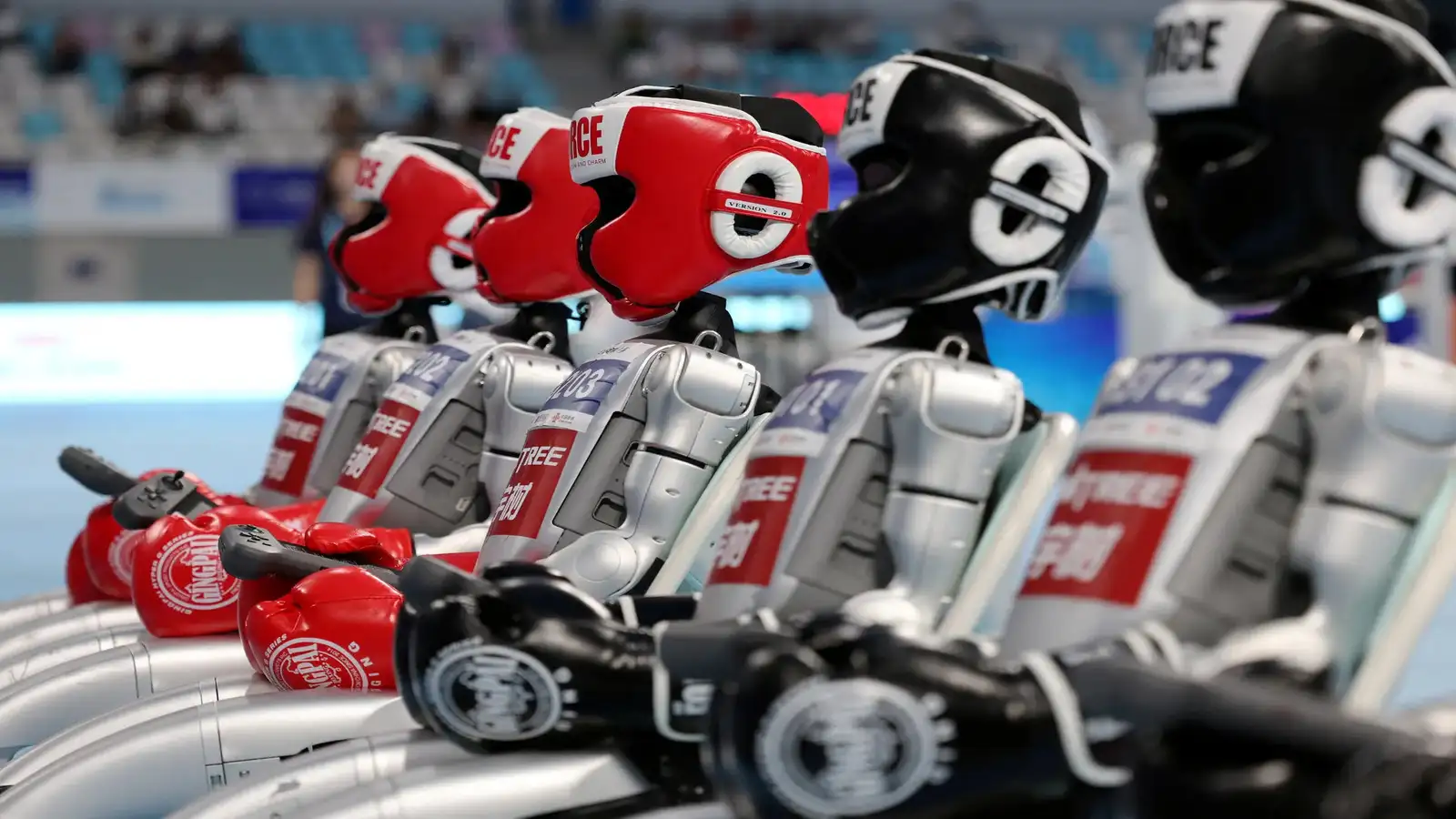

According to sources, India orders a university to withdraw from the AI summit after introducing a Chinese robot as its own.
According to two government sources, an Indian university was forced to leave its booth at the nation's premier AI event after a staff member was seen passing off a commercially available robotic dog manufactured in China as the institution's own.Orion needs to meet you. This was created by Galgotias University's Centre of Excellence," communications professor Neha Singh said this week on state-run channel DD News in comments that have since gone viral.NEW DELHI (AP) — After one of its employees showed off a commercially available robotic dog manufactured in China and claimed it was the institution's own invention, a private Indian university was expelled from a major artificial intelligence symposium in New Delhi on Wednesday. Two government sources claim that a day after Neha Singh, a communications professor at Galgotias University, told state-run broadcaster DD News that the robotic dog Orion was created by the university's Center of Excellence, the university was directed to remove its booth at the summit. However, internet users soon recognized the robot as the Unitree Go2, which is used extensively in research and education and is marketed by China's Unitree Robotics. It starts at $1,600. Singh told reporters on Wednesday that she had never stated outright that the dog was an exhibit rather than the university's original creation.The two government officials, who spoke on condition of anonymity because they were not permitted to address the media, said the event was an embarrassment for the host nation, India. But according to a statement from Galgotias, the university was "deeply pained" and called the occurrence a "propaganda campaign" that might spread negativity and lower the spirits of students who are trying to use global technology to innovate, learn, and develop their talents.
Published 18 Feb 2026 06:06 PM


Twenty-seven Maoists in Sukma, Chhattisgarh, surrender
According to the police, up to 27 active Maoists with a combined reward of ₹50 lakh turned themselves in to the Sukma district on Wednesday, October 15, 2025.This comes a day after 60 other cadres and senior Naxalite Mallojula Venugopal Rao, also known as Bhupathi, surrendered in the Gadchiroli district of Maharashtra. The government's determination to abolish Naxalism, which is mostly centered in the Bastar area of Chhattisgarh, by March 31, 2026, has been emphasized by Union Home Minister Amit Shah.Ten women were among the 27 Naxalites who gave up in Chhattisgarh on Wednesday. They surrendered in front of Central Reserve Police Force officials and top police officers. According to Sukma Superintendent of Police Kiran Chavan, they expressed dissatisfaction with the "hollow" Maoist doctrine, crimes carried out by Naxalites on defenseless tribal people, and the increasing power of security forces. The Chhattisgarh government's 'Niyad Nellanar' initiative, which aims to facilitate development projects in rural communities, and the state's new surrender and rehabilitation policy also impressed the cadres, he said.According to the official, Oyam Lakhmu, a member of battalion no. 1 of the Peoples' Liberation Guerrilla Army, which was regarded as the most formidable Maoist military unit, was carrying a bounty of ₹10 lakh on his head. Three more According to him, Madvi Bhima, a party member in PLGA battalion no. 1's military platoon unit, Sunita, also known as Kawasi Somdi, and Sodi Mase, who were both members of regional military company no. 2, each held a ₹8 lakh reward. Additionally, he stated that a cadre held a prize of ₹3 lakh, two cadres held a bounty of ₹2 lakh each, and nine cadres held a reward of ₹1 lakh apiece.He stated that all of the Naxalites who turned themselves in received ₹50,000 in aid apiece and would receive additional rehabilitation in accordance with government policy.
Published 15 Oct 2025 05:10 PM
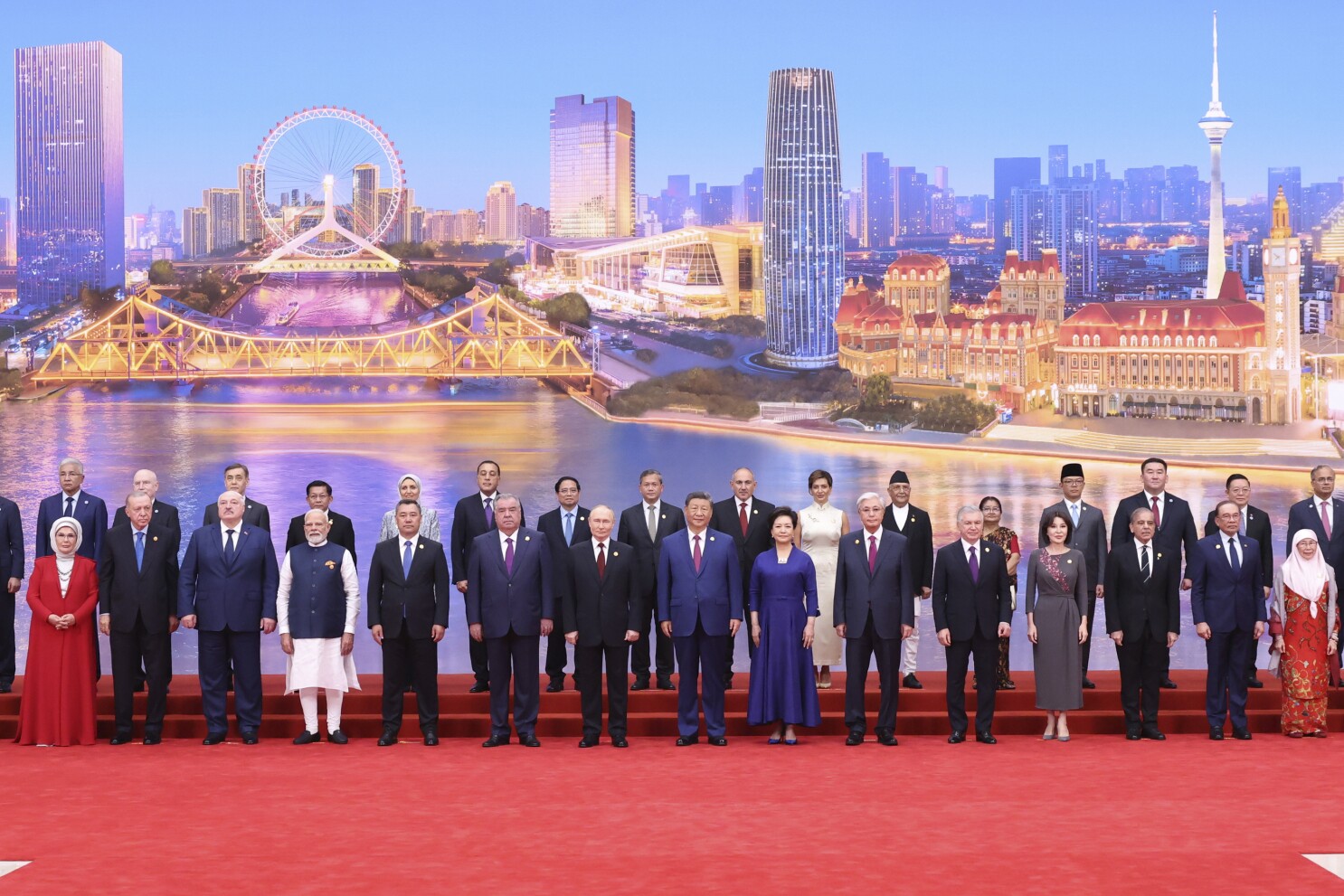

China is showcasing its idea of a new global order at the SCO summit and Victory Day parade.
Review of the iPhone 17 Pro Max: The iPhone 17 series and the iPhone Air have generated a surge of interest. It was only after some time that numerous individuals reached out to me for upgrade recommendations during the launch week itself. It’s worth noting that many of these individuals appear to be utilizing the iPhone 13 series and are eager for an upgrade. This is the reason why I examined the iPhone 17 Pro Max mainly through the perspective of an iPhone user who is upgrading after several years.With the iPhone 17 Pro series, Apple has emphasized how simple it is to make a device that turns heads by just experimenting with colors. In years, nothing has generated more excitement about a phone than the cosmic orange. Although silver and deep blue are more conventional colors, the orange draws everyone's attention, whether they love it or love to hate it. What a brilliant marketing success for Apple.
Published 06 Oct 2025 05:37 PM
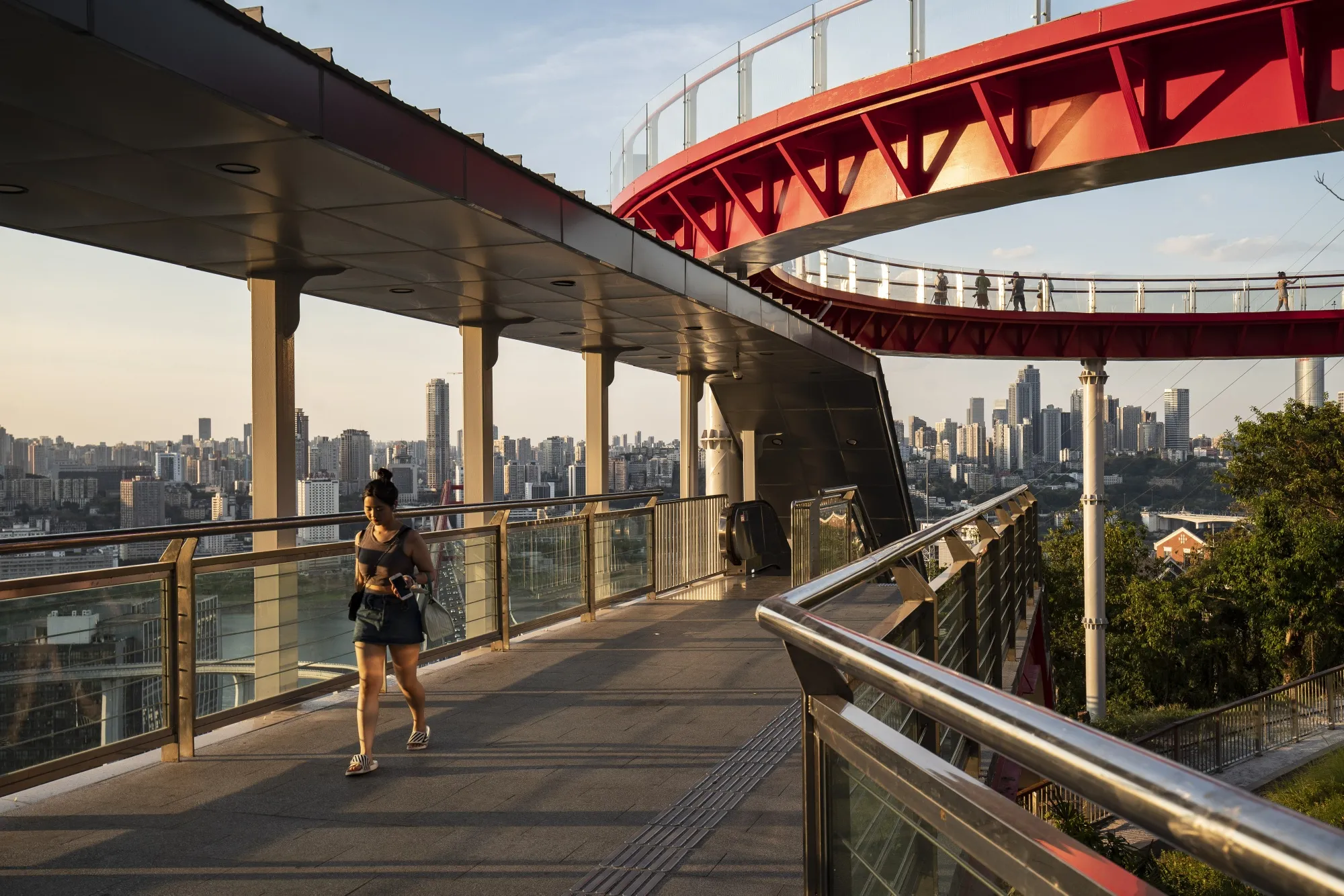

Due to M&A issues, Boutique Investment Bank BDA eliminates jobs in China.
According to persons acquainted with the situation, BDA Partners has laid off a few investment bankers in Shanghai in order to deal with growing competition in China and transaction uncertainty. This makes the company the most recent financial services company to pull out of the second-largest economy in the world.According to insiders who asked not to be named because the information is confidential, the boutique business that specializes in mergers and acquisitions has fired five investment bankers headquartered in Shanghai and moved a couple to BDA's Hong Kong office. According to the persons, three senior bankers are remaining in Shanghai to work on ongoing mandates and close new business.BDA was established in 1996 and has offices in Singapore and New York. According to its website, it offers international customers M&A assistance with an emphasis on Asia, primarily for small-to-mid-sized deals. In addition to London, it maintains offices in Shanghai, Hong Kong, Tokyo, Seoul, Mumbai, and Ho Chi Minh City.In an email answer to a question from Bloomberg News, Simon Kavanagh, BDA's head of Greater China, stated, "BDA has been in China since 1999 and we remain strongly committed to M&A across China, Hong Kong, and Taiwan." We have senior bankers on the ground in Hong Kong and the PRC as part of our ongoing active coverage of China.Even though the number of transactions involving Chinese companies has increased this year, advisers still face several difficulties. These include more inbound investment, significant differences in buyer and seller valuations, fierce competition that is driving down prices, and challenges closing agreements due to regulatory and geopolitical issues, including tariffs.
Published 17 Sep 2025 04:51 PM


Is it possible for the EU and NATO to impose tariffs on China and India as Trump desires?
In an effort to pressure Russian President Vladimir Putin to halt the war in Ukraine, US President Donald Trump has urged NATO and EU members to impose tariffs of up to 100% on China and India.Trump, who previously pledged to end the conflict on “day one” of becoming president, made his demand during a meeting between United States and European Union officials last Tuesday. The move is seen as a way to try to expedite a peace deal between Moscow and Kyiv.In a letter posted on his Truth Social account on September 13, Trump said he was “ready to do major sanctions on Russia” once NATO had “agreed … to do the same thing”. He also claimed that elevated tariffs on China would weaken Beijing’s “control” over Russia.China and India buy Russia’s oil, which is helping to keep the Russian economy afloat. As the largest buyer of Russian energy, China imported 109 million tonnes of crude oil last year, representing roughly 20 percent of its total energy imports, according to Chinese customs data. India, by contrast, imported 88 million tonnes of Russian oil in 2024, or about 35 percent of its imports.To sidestep the issue, Trump on Saturday asked NATO to impose 50-100 percent tariffs on China to weaken Beijing’s economic grip over Russia. In the letter Trump posted on Saturday, he claimed the halt on Russian energy purchases, combined with heavy tariffs on China, would be of “great help” in ending the conflict.Europe’s reliance on Russian energy has fallen since the start of Moscow’s full-scale invasion of Ukraine in February 2022. At the time, the EU imported 45 percent of its natural gas from Russia. That is expected to fall to just 13 percent this year. But Trump wants Europe to do more.
Published 16 Sep 2025 02:06 PM


We Don't Take Part In Wars : China Responds to Trump's Threat of 100% Tariffs
The comments were made soon after US President Donald Trump suggested on Saturday that NATO apply 50–100% tariffs on China.In response to President Donald Trump's suggestion that NATO put 50–100% tariffs on Beijing for its purchases of Russian energy, China has retaliated. Chinese Foreign Minister Wang Yi has emphasized that sanctions would only make matters worse and reiterated Beijing's commitment to advancing peace negotiations to address hot-spot concerns.According to China Daily, he made the comments at a press conference in Ljubljana on Saturday following a meeting with Tanja Fajon, Slovenia's Deputy Prime Minister and Minister of Foreign and European Affairs."China does not participate in or plan wars, and what China does is to encourage peace talks and promote political settlement of hotspot issues through dialogue," Wang Yi stated.Additionally, he called for the strengthening of multilateral structures, the promotion of multilateralism, and the cooperative defense of the UN Charter's goals and tenets. He emphasized that the current state of international affairs is marked by ongoing wars and entangled disarray."China and Europe ought to work together rather than against one another, and they ought to be allies rather than adversaries. According to Global Times, Wang Yi stated, "Making the correct decisions in the midst of the biggest changes in a century demonstrates the responsibilities that both sides should fulfill towards history and the people."His subliminal allusion follows US President Donald Trump's suggestion on Saturday that NATO apply tariffs on China ranging from 50% to 100%.
Published 15 Sep 2025 09:13 PM


An Overview of the UPSC Issue | SCO Summit 2025 and India: Four Crucial Questions for Prelims and Mains
By scheduling two significant events in one week—the Shanghai Cooperation Organization (SCO) Summit in the northeastern city of Tianjin and a Victory Day parade in Beijing's Tiananmen Square commemorating the 80th anniversary of the end of World War II—Beijing has entered diplomatic high season as summer draws to a close. It's difficult to overlook the symbolism. The events convey a clear message: in contrast to the Western narrative of a free international order led by the United States, China is positioning itself as the standard-bearer of a multipolar world dominated by the Global South.Both occasions are expertly produced political plays that combine military prowess, diplomatic posture, and historical narrative. Additionally, China has two audiences in mind: it wants to project power and influence in its neighborhood and beyond while simultaneously boosting domestic public morale. For a long time, Chinese strategists have emphasized that the goal of foreign policy is to establish an external environment that supports economic growth at home. Originating with previous Chinese leader Deng Xiaoping, this core idea has evolved into the current leadership's catchphrase for negotiating a turbulent global landscape.The two events' participating nations attest to China's continued strategic emphasis on Asia. The majority of major Asian nations are represented among the more than 30 heads of state and international organizations taking part, with the notable exception of Japan, South Korea, Singapore, and the Philippines—all of whom are strong security partners of the United States.
Published 05 Sep 2025 08:48 PM


Trump posts a photo of Xi, Putin, and the PM together: China has taken Russia and India away from us.
Days after the leaders of the three nations were spotted together at the Shangai Cooperation Organization (SCO) Summit in Tianjin, Donald Trump gave a strong indication on Friday that Washington-New Delhi relations had reached a low point when he claimed that the US had "lost" India and Russia to the "darkest" China.Donald Trump's statement that the US has "lost" India and Russia to the "darkest" China on Friday, just days after the leaders of the three nations were spotted together at the Shangai Cooperation Organization (SCO) Summit in Tianjin, was a clear indication that relations between Washington and New Delhi had reached a low point.India and Russia appear to have been lost to the darkest, most sinister China. I hope their future together is filled with success and longevity! "President Donald J. Trump," Trump wrote as the description for his Truth Social post, which included a photo of PM Modi at the Tianjin meeting with Putin and Jinping. During a press briefing on Friday, the Ministry of External Affairs declined to comment on Trump's post. "We don't have anything to comment on Trump's post as of now" ."Trump and Modi had a great personal relationship. In an interview with the British broadcaster LBC, Bolton stated, "I think that's gone now, and it's a lesson to everybody." "For example, (UK Prime Minister) Keir Starmer -- a good personal relationship may help at times, but it won’t protect you from the worst" . Bolton's warning implied that Modi's much-discussed "bromance" with Trump, which previously made headlines for everything from state visits to Houston's "Howdy Modi" rally, might have come to a standstill.
Published 05 Sep 2025 08:40 PM
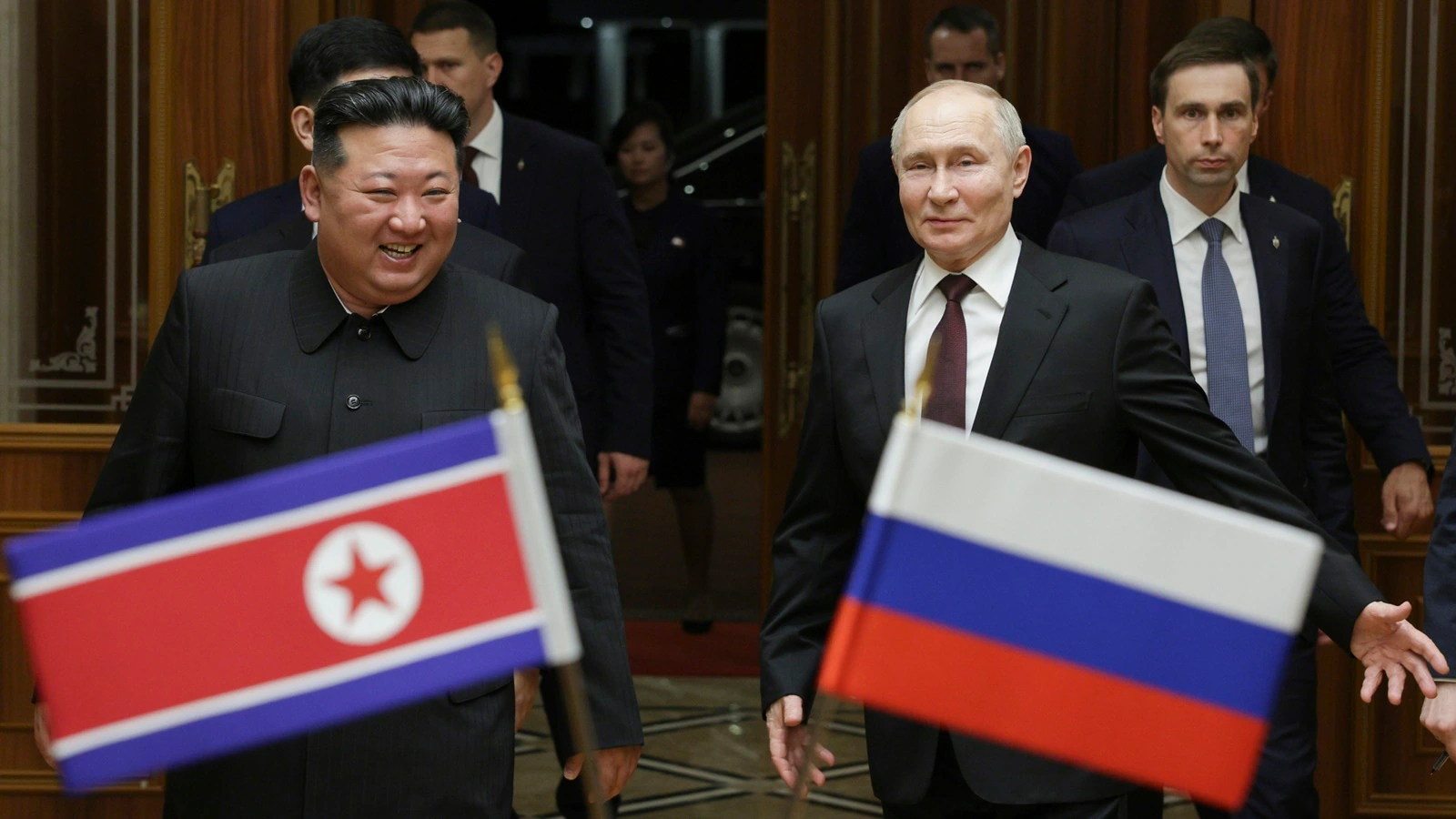

What happened to Kim Jong Un? How internet users respond to PM Modi's cordial interactions with Xi and Putin during the SCO meeting in China
Prime Minister Narendra Modi's cordial interactions with Chinese President Xi Jinping and Russian President Vladimir Putin stole the show at Monday's Shanghai Cooperation Organization (SCO) summit in China.The internet responded with its usual sense of humor to the remarkable exhibition of friendliness between the three leaders during the summit, which took place in the northern Chinese town of Tianjin and featured hugs, huddles, and laughter.What happened to Kim Jong Un? One person inquired regarding the location of North Korea's supreme leader. Another reader commented, "In the train," in response to this post.In the midst of international tensions due to US tariffs, the three leaders' unity was particularly noteworthy. Days after US President Donald Trump placed 50% tariffs on Indian goods for New Delhi, PM Narendra Modi had bilateral discussions with Xi and Putin on the fringes of the SCO conference."100% tariff lagade who, is se zyada kya karega who," Modi allegedly told leaders at the SCO conference, including Xi and Putin, according to a phony audio overlay on the meeting's footage.For the first time in seven years, Prime Minister Narendra Modi is visiting China. Meetings with Putin and Xi are interpreted as Modi's attempt to improve ties with Russia and mend fences with China in the face of tense US relations.
Published 01 Sep 2025 05:47 PM
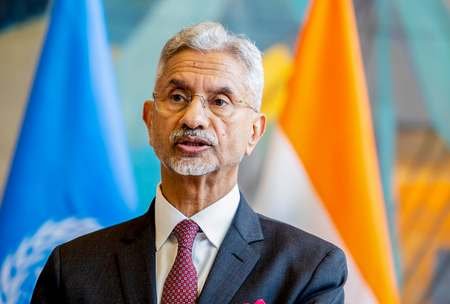

Pretended to be an oil issue, Jaishankar criticizes US penalties on India for its trade with Russia while stating that talks are still ongoing.
S Jaishankar, the minister of external affairs, criticized the US government for levying more duties on India because of the nation's decision to engage in commerce with Russia. He referred to the action as "unjustified and unreasonable," and he questioned why China, the "biggest importer" of Russian oil, did not receive comparable justifications.Jaishankar made the argument that the tariff issue was being misrepresented as a "oil dispute" during his speech at The Economic Times World Leaders Forum 2025."There are (other) large buyers if oil is the point of contention. "There are bigger traders if the dispute is about who is trading more (with Russia)," he stated. He noted that trade between Russia and Europe is larger than that between India and Russia.The EAM further explained that although trade talks with Washington are still ongoing, New Delhi must defend certain positions. At the ET event, he stated, "We have some redlines in the negotiations, to be maintained and defended." Due to Washington's increased imports of Russian energy, Indian commodities are subject to additional US tariffs of up to 50%, which are among the highest. A 25% tax is already in place, and the remaining 25% will be applied starting on August 27.S Jaishankar, the minister of external affairs, stated on Saturday that US President Donald Trump conducts his foreign policy, particularly trade issues, in a very public manner. The Union minister said that until Trump's announcement, which increased tariffs on India to 50%, there had been no discussion about India purchasing Russian oil. The EAM emphasized during their speech at the Economic Times World Leaders Forum 2025 that Trump often conducts his foreign policy in a more visible manner."The current US president has conducted foreign policy in a more public manner than any previous one. Jaishankar stated, "That in and of itself is a departure that is not limited to India." There has never been a US president that handles internal affairs as openly as Trump, the EAM continued. "President Trump's way of dealing with the world, even dealing with his own country, is a very major departure from the traditional orthodox manner of doing so," he stated. The minister went on to say that Trump's use of tariffs for both trade and non-trade issues is new. The EAM went on to say that the Trump administration frequently makes its initial announcement in public before addressing the relevant party.
Published 23 Aug 2025 04:58 PM
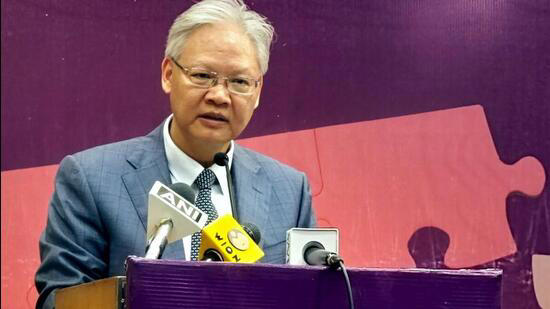

Chinese Envoy: U.S. Tariffs Threaten Stability, Demand Response
In a recent address, China's Ambassador to the United States warned that remaining silent in the face of increasing U.S. tariffs would only encourage further pressure. The statement comes amid growing tensions over trade policies, with the U.S. implementing new tariffs on Chinese goods in what it says is a response to unfair trade practices and national security concerns. The ambassador urged dialogue and mutual respect, emphasizing that cooperation, rather than confrontation, benefits both nations. He suggested that escalating trade barriers harm not just the economies involved but also global supply chains and ordinary consumers who bear the cost of such measures. While the U.S. maintains that its tariffs are necessary to protect domestic industries and maintain fair competition, Chinese officials argue that these steps are politically motivated and harmful to long-term stability. The ambassador's remarks appear to reflect a broader effort by China to rally international support against what it views as economic coercion. As both countries continue to shape global economic trends, the tone and direction of their engagement will have wide-reaching implications—not only for governments and businesses but for millions of people whose daily lives are touched by the trade between the two powers.
Published 22 Aug 2025 03:22 PM
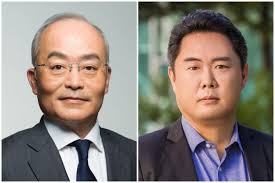

Nishino Hideaki Hermen Hulst will remain as head of PlayStation Studios after being promoted to sole CEO of SIE.
As part of a leadership change at Sony and PlayStation, Hideaki Nishino has been named as the sole CEO and president of Sony Interactive Entertainment (SIE). Sony said Tuesday that Nishino, who was named SIE co-CEO in charge of Platform Business Group in June 2024, will start his new position on April 1, 2025. Hermen Hulst, who was named PlayStation's co-CEO in charge of Studio Business Group last year, will now report to Nishino rather than sharing leadership of SIE as a result of the leadership change. However, Sony stated that Hulst will remain in charge of PlayStation Studios. The firm stated in a news statement that Nishino was named CEO of the Platform Business Group with effect from June 1, 2024, joining Hermen Hulst as CEO of the Studio Business Group. This represents an evolution intended to maximize synergies across SIE, which was announced in May 2024.The Sony Group Names a New CEO The parent company of PlayStation also declared that, as of April 1, Hiroki Totoki, the president, COO, and CFO of Sony Group Corporation, will resign from his role as SIE Chairman to assume leadership as the firm's president and CEO. Furthermore, SIE's SVP of Finance, Corporate Strategy, and Development, Lin Tao, will be elevated to the position of CFO at Sony Group.
Published 31 Jan 2025 10:52 PM



